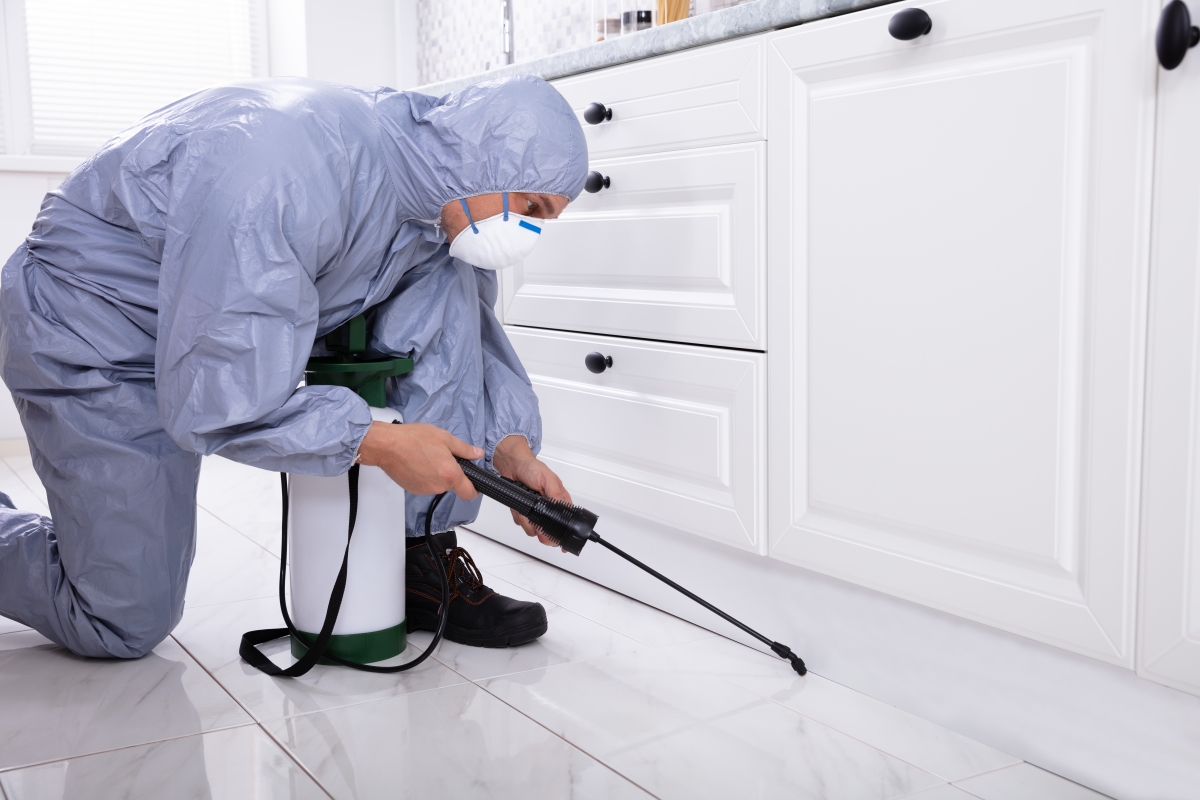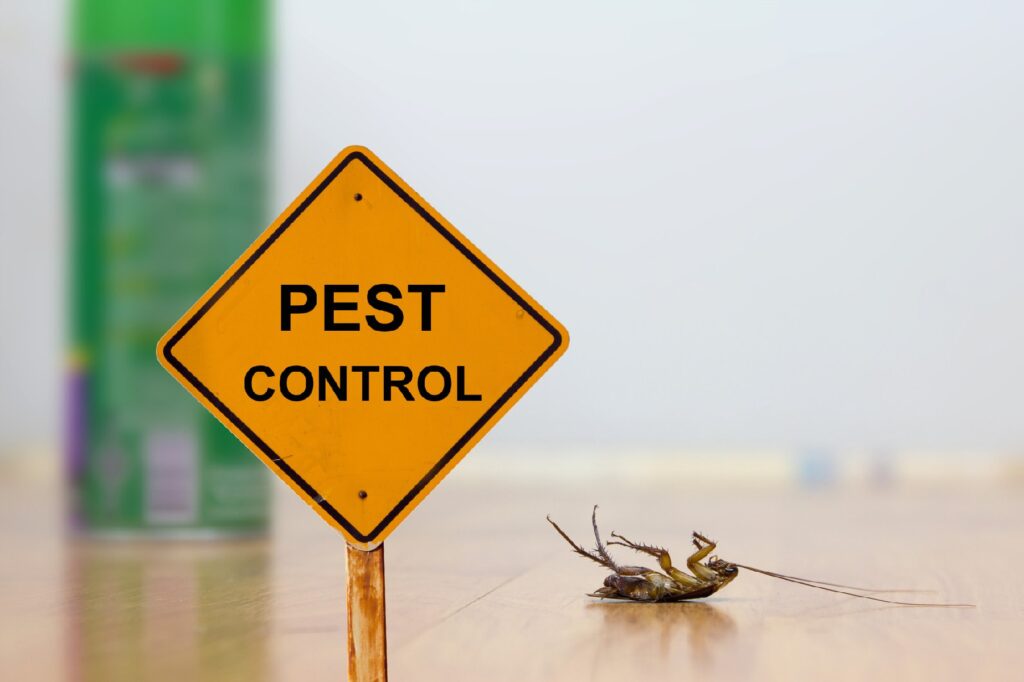Trusted Exterminator Coquitlam Services for Effective Pest Management
Trusted Exterminator Coquitlam Services for Effective Pest Management
Blog Article
Safe and Dependable Bug Control for Lasting Defense
Effective insect monitoring requires a multifaceted approach that stabilizes eco-friendly honesty with the demand for effective parasite suppression. The subtleties of these techniques may not be immediately clear, motivating a better examination of the techniques that can lead to sustainable bug control end results.
Comprehending Insect Control Techniques
Parasite control includes a variety of approaches focused on handling and eradicating unwanted insects and rats that can intimidate both health and wellness and residential property. Understanding these techniques is essential for reliable insect monitoring.
The key categories of bug control approaches include mechanical, organic, and chemical approaches. Mechanical techniques entail physical obstacles and catches to prevent bug access and capture unwanted species. Utilizing screens on home windows or utilizing sticky catches can significantly decrease bug populaces without presenting dangerous substances - exterminator coquitlam.

Chemical insect control is frequently one of the most identified technique, utilizing pesticides to eliminate pests. These chemicals can be reliable yet need to be utilized with caution to avoid adverse results on non-target types and the atmosphere.
Benefits of Eco-Friendly Solutions
Exactly how can environment-friendly solutions transform bug control practices? The adoption of environment-friendly bug control methods provides many advantages, considerably improving the performance and safety of bug monitoring.

Another advantage is the favorable influence on regional biodiversity. Environmentally friendly options are created to target certain bugs while protecting helpful insects and wild animals, advertising a well balanced ecological community. This technique lines up with the growing customer need for lasting methods, improving the credibility of pest control suppliers.
Integrated Bug Monitoring Approaches
The application of environment-friendly options naturally results in the adoption of Integrated Pest Management (IPM) strategies, which better boost insect control efficacy. IPM is a holistic approach that incorporates numerous tactics to take care of bug populations while decreasing ecological influence. This method emphasizes making use of biological, social, mechanical, and chemical controls, making sure a sustainable and well balanced technique of pest administration.
One fundamental facet of IPM is the complete analysis of pest activity and ecological problems. By monitoring bug populaces and identifying their life process, practitioners can carry out targeted treatments that interrupt the parasite's habitat or lifecycle, decreasing reliance on chemical pesticides. Furthermore, social practices such as plant turning and habitat control can substantially decrease insect facility and reproduction.
One more critical component is using biological control agents, such as helpful insects or bacteria, which can normally subdue bug populations. When chemical applications are required, IPM focuses on the use of low-risk chemicals and uses them precisely, minimizing exposure to non-target organisms and people.
Integrating IPM approaches not just boosts pest control effectiveness however likewise advertises a more secure ecosystem, aligning with the expanding demand for sustainable practices in insect administration.
Safe Practices for House Owners
Recognizing the relevance of safe practices in pest control can empower homeowners to successfully handle bug concerns while safeguarding their health and the environment. Implementing safe approaches and safety nets is important in lessening exposure to hazardous chemicals.
Homeowners need to first assess their atmosphere for problems that draw in insects, such as standing water, mess, and food waste. Frequently cleaning and securing entrance factors can discourage parasites from getting into the home. Making use of natural deterrents, such as important oils or diatomaceous planet, can offer reliable options to chemical pesticides.
When chemical therapies are needed, homeowners should decide for products that are especially identified as risk-free for residential usage. It is crucial to follow application guidelines thoroughly to avoid too much exposure. Utilizing targeted treatments in locations where insects are recognized, instead than blanket spraying, can substantially minimize chemical usage.
Lastly, maintaining open communication with bug control specialists is vital. Property owners must ask about the security of items made use of and demand environment-friendly options whenever possible. By embracing these risk-free methods, homeowners can produce a much healthier living environment while successfully managing insect problems.

Tips for Long-Term Security
Developing an insect management technique that highlights long-term protection can substantially boost the effectiveness of the safe wasp control techniques previously talked about. To attain this, house owners should implement routine inspections of their residential or commercial property, concentrating on concealed areas such as attics, cellars, and crawl rooms. Early detection of insect activity is important in preventing infestations from taking hold.
These methods lower attractants that attract parasites right into the home. Securing access points, such as cracks around doors and home windows, can effectively obstruct possible pest accessibility.
Landscaping must likewise be taken into consideration; maintaining plants cut and maintaining a distance between vegetation and the home decreases hiding spots for parasites. Making use of all-natural deterrents, such as important visite site oils or diatomaceous planet, can additionally inhibit infestations without considering severe chemicals.
Lastly, collaborating with a specialist bug control solution for periodic examinations can give an additional layer of safety and security. These professionals can use tailored recommendations and advanced therapies, making certain that your home continues to be safeguarded against pests in the lengthy term.
Conclusion
In final thought, dependable and secure insect control requires a complex approach that emphasizes green methods and incorporated parasite monitoring. By applying natural deterrents, conducting regular examinations, and maintaining correct hygiene, homeowner can dramatically minimize bug populations while protecting valuable insects and the setting. Partnership with specialist insect control solutions enhances the effectiveness of these methods, ensuring tailored services that supply enduring protection and tranquility of mind versus future problems.
Reliable insect monitoring requires a complex approach that balances eco-friendly stability with the demand for reliable bug suppression. The adoption of environment-friendly insect control methods provides various advantages, dramatically enhancing the efficiency and pest treatment safety of bug administration.The application of eco-friendly services naturally leads to the fostering of Integrated Bug Monitoring (IPM) techniques, which further boost pest control efficiency. exterminator coquitlam. By checking bug populaces and determining their life cycles, experts can apply targeted treatments that disrupt the bug's habitat or lifecycle, lowering dependence on chemical pesticides.In verdict, trusted and safe insect control requires a complex strategy that highlights eco-friendly approaches and integrated bug administration
Report this page